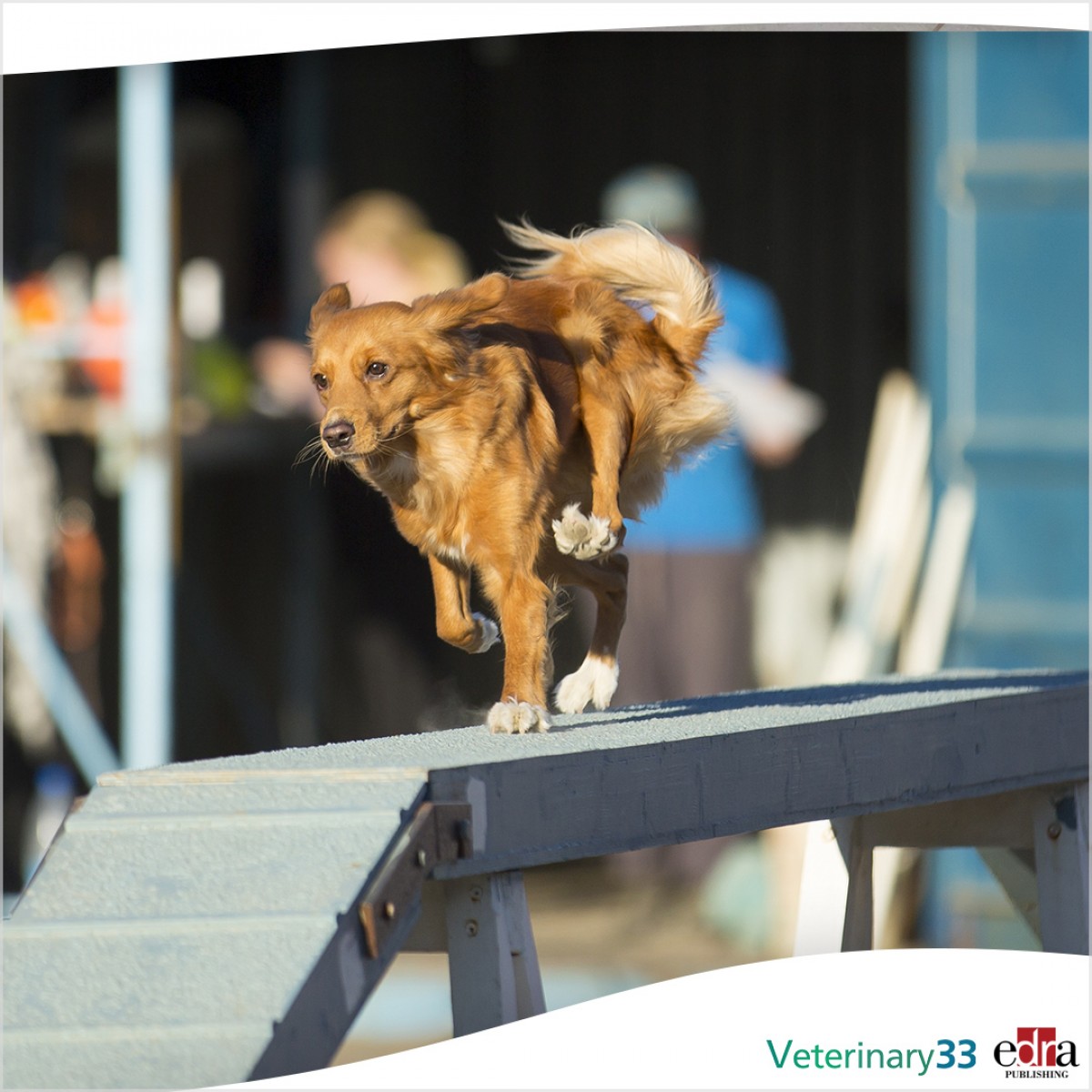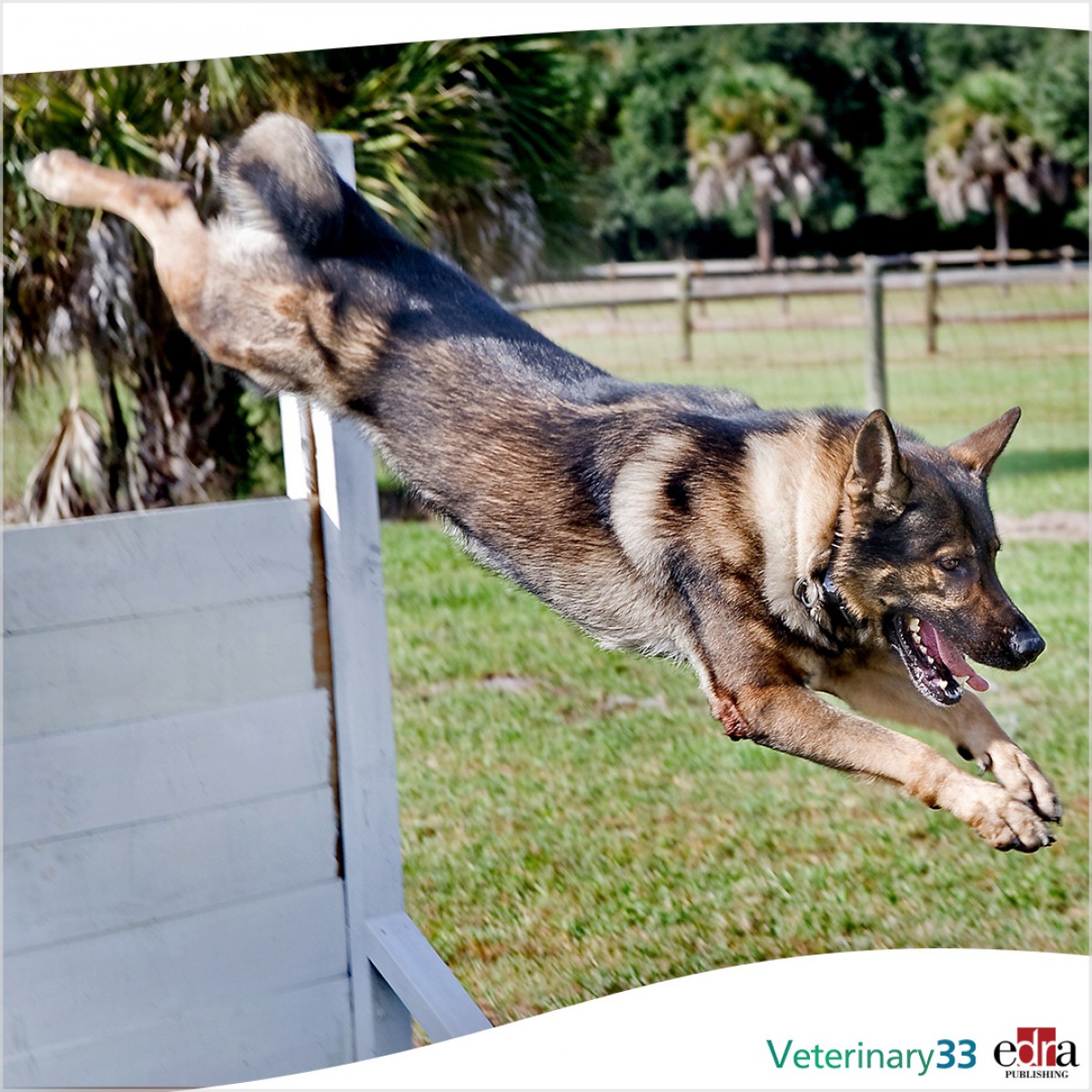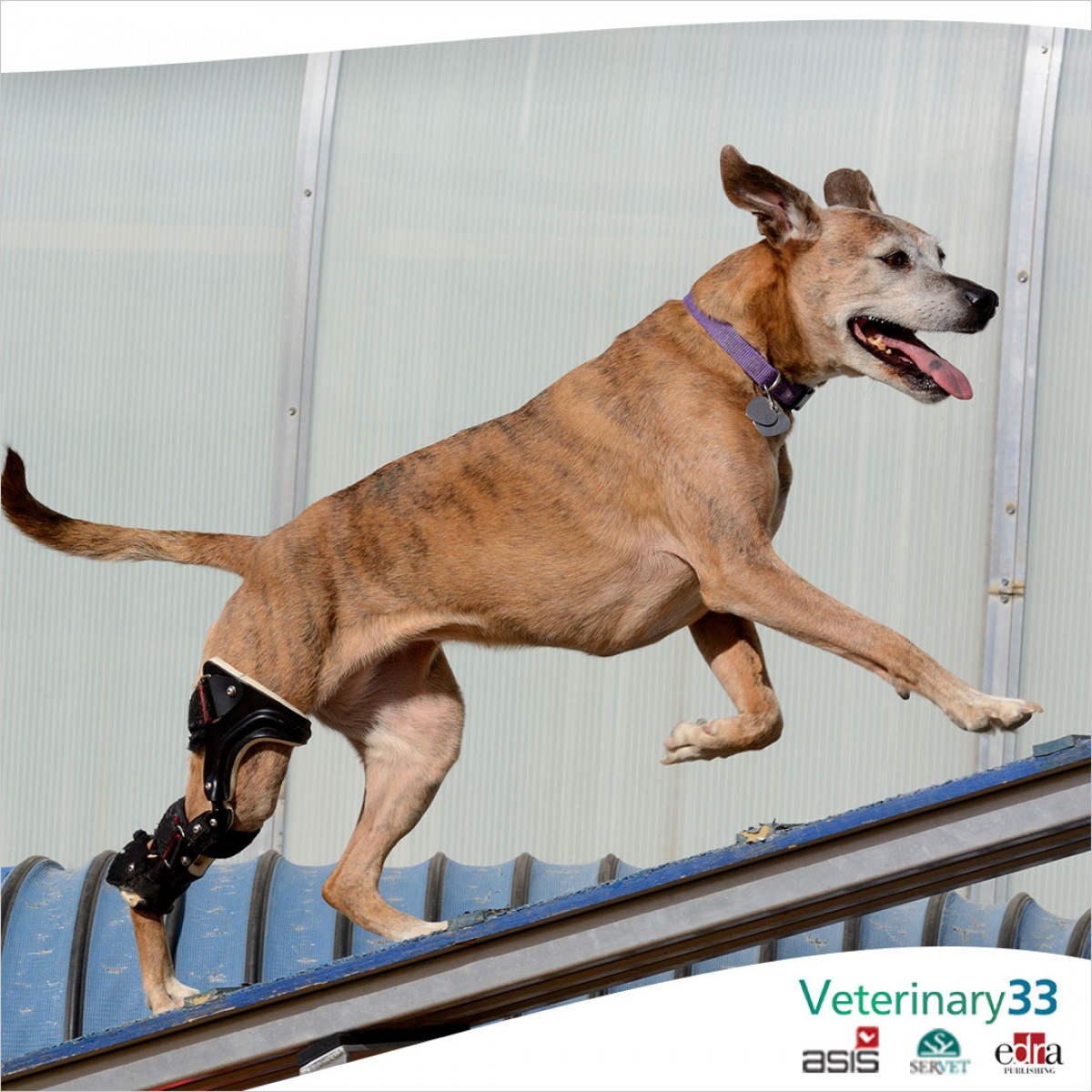Cranial Cruciate Ligament Rupture in Dogs: Review on Biomechanics, Etiopathogenetic Factors and Rehabilitation
Cranial cruciate ligament rupture can be managed conservatively or surgically
Cranial cruciate ligament (CrCL) rupture is one of the most common orthopaedic conditions in veterinary medicine. CrCL plays a fundamental role in the stability and biomechanics of the femoral-tibio-patellar joint, and its incorrect functionality severely impacts on the quality of life of patients. In dogs, the structural weakening of this joint due to the progressive degeneration of the ligament is the most accredited etiopathogenetic hypothesis in relation to the dog signalment (breed, sex and age) and the stifle joint conformation. In humans, this injury is often traumatic and generally occurs during sporting activities. CrCL rupture can be managed conservatively or surgically, and decisions regarding treatment are due to numerous factors: the patient's age and health, the degree of stifle instability, and cost. Physiotherapy protocols play an important role in rehabilitation, with similar goals in humans and dogs: pain management, physiological articular range of motion recovery, periarticular and core muscle strengthening, and proprioceptive deficit correction. Physiotherapy, even if often neglected in veterinary medicine, is mandatory for the recovery of the correct functionality of the injured limb and for the return to normal daily and sporting activities.
“Cranial Cruciate Ligament Rupture in Dogs: Review on Biomechanics, Etiopathogenetic Factors and Rehabilitation” Giuseppe Spinella, et al. Vet Sci. 2021 Sep 6;8(9):186. doi: 10.3390/vetsci8090186.













List
Add
Please enter a comment